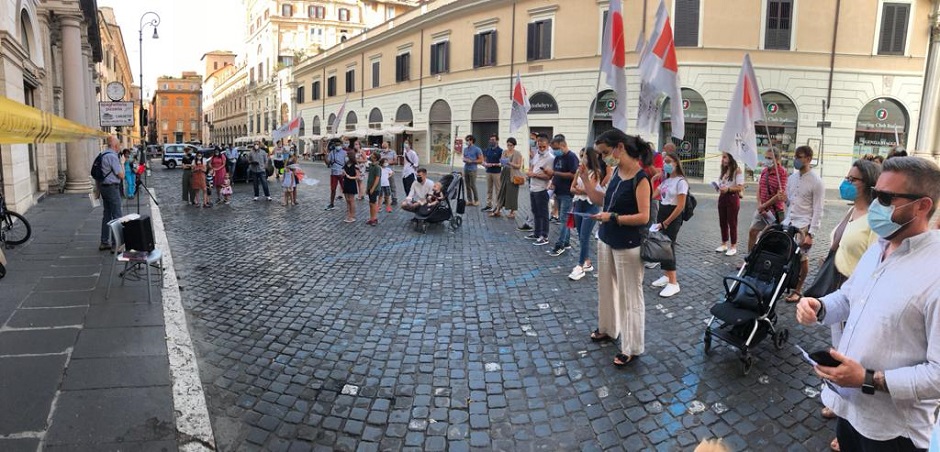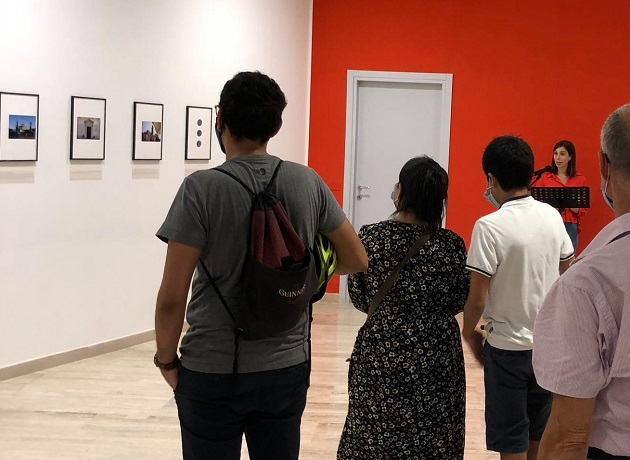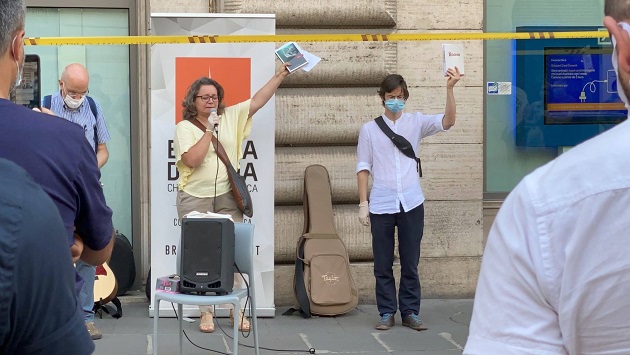Italian Evangelicals celebrate the 150th anniversary of the “breccia di Roma” (breach of Rome). It opened the door for Rome to become a pluralistic city whose residents could finally begin to experience religious liberty.
 The outdoor worship service on 20 September 2020. / Breccia di Roma
The outdoor worship service on 20 September 2020. / Breccia di Roma
On the 20th of September 1870, the Italian army breached the wall surrounding Rome near the ancient port known as Porta Pia. On that day men flooded into the city and claimed Rome as the capital of the nation.
150 years later, Italian evangelicals celebrated this historic event. Why is that? Because the breach of Rome opened the door for Rome to become a pluralistic city (and therefore a pluralistic nation) whose residents could finally begin to experience a religious liberty that previously did not exist under the rule of the Popes and the Roman Catholic Church.
Although Rome served as the capital of Christianity, it was a Christianity that had outlawed the Bible in the language of the people and persecuted anyone who might be found with such contraband.
The breach of Rome brought change for the city. As the Pope’s territory was pushed back to the Vatican, so was the Roman church’s oppressive grip on the biblical Gospel of grace that began to enter the city unthreatened by the Pope.
Just behind the Italian army where men known as “colportori”, mobile book venders who carried copies of the Holy Bible that had been translated into the Italian language by the Italian reformer Giovanni Diodati 250 years prior to the breach of Rome. Finally, the Gospel of Jesus Christ in the language of the people began to be freely distributed within the capital of the Italian nation. Citizens of Rome were finally free to discover and know God through His word, rather than through the mediation of an institution who so often contradicted and suppressed it.
 Exhibition Da Breccia a Breccia. / BDR
Exhibition Da Breccia a Breccia. / BDR[photo_footer] Exhibition Da Breccia a Breccia. / BDR [/photo_footer] Onthe 19th of September 2020, the church Chiesa Evangelica Breccia di Roma celebrated this historic event with the inauguration of a photographic/documentary art exhibit. Hosted in the historic city center of Rome, the exhibit “Da breccia a breccia” (from breach to breach) recounts the story of how Rome began to experience new religious liberties 150 years ago (from breach) and the ways in which God has allowed the Gospel to advance in the city thus far (to breach). The exhibit will remain open to the public until November 1st, 2020.
Then on the 20th of September 2020, several evangelical churches gathered together in the open near Piazza Venezia to celebrate the 150th anniversary of the breach of Rome. The celebration was a time of public worship filled with singing, preaching and testifying about the good news of God’s grace and the forgiveness that is freely available to all who would repent of their sins and look to Jesus Christ alone for their salvation.

[photo_footer] Prayers during the 20 September event in Rome. / BDR [/photo_footer] The public service concluded with prayers for the nation’s and Rome’s leaders, for God to help the nation grow in the ongoing and much needed work for even greater religious liberty in Italy, and with pleas for God to breach the spiritual walls of the hearts of the nation’s people with the good news and liberty that only the Gospel of grace, the biblical Gospel, can provide.
The evangelical churches, Breccia di Roma and Breccia di Roma San Paolo, are called to serve the city of Romein a royal, prophetic and priestly way. Their desire is that God would continue to bless the work He has already given them in the equipping of the saints, the training of new church leaders, mercy ministries to the outcast and oppressed, and the planting of more churches in Rome and the nation. While carrying the name “Breccia”, they desire to carry on the heritage of this historic event that led to a diffusion of the Gospel in the city.
Clay Kannard is an evangelical pastor in Rome, and communications director of the Reformanda Initiative.

Las opiniones vertidas por nuestros colaboradores se realizan a nivel personal, pudiendo coincidir o no con la postura de la dirección de Protestante Digital.
Si quieres comentar o